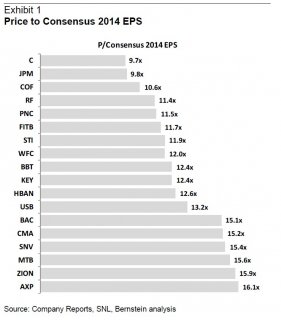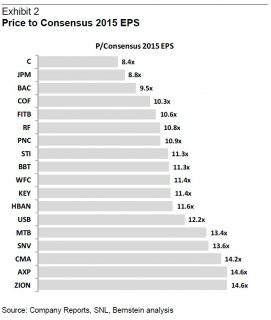
 This summary of the troublesome trends in banking is obtained from a panel discussion using the team in the beginning Manhattan Talking to Group, including Leader JimMcCormick, Pete Gilchrist (Risk Management), Andrew Frisbie (Deposit Statistics), Kris Lazzaretti (Marketing Services), Jonathan “Wes” West and Gary Wang.
This summary of the troublesome trends in banking is obtained from a panel discussion using the team in the beginning Manhattan Talking to Group, including Leader JimMcCormick, Pete Gilchrist (Risk Management), Andrew Frisbie (Deposit Statistics), Kris Lazzaretti (Marketing Services), Jonathan “Wes” West and Gary Wang.
Troublesome trends in banking: Marketing statistics/Large Data will disrupt relative loan growth
Marketing of financial loans is becoming a lot more sophisticated during the last few years.It is no more only a matter of getting a great advertising campaign get noticed and skilled bankers/salesmen to shut the financial loans, today sturdy focusing on specific loan items to a particular census. What this means is examining Large Data to recognize your specific marketing groups.
“FMCG thinks that although getting skilled bankers is essential, banks which are those who win in growing their consumer and commercial loan investment portfolios are progressively embracing comprehensive data libraries and advanced statistics. Advanced segmentation, an earlier utilization of such data and statistics, would be a loan growth windfall to find the best professionals like Personal Bank (NASDAQ:SBNY), City National Corp (New york stock exchange:CYN), PNC Financial Services Group Corporation (New york stock exchange:PNC), and General electric Capital. Segmentation remains a highly effective approach, based on Mr. Lazzaretti, but “big data” now enables statistics to become much more granular and actionable.”
 Today banks don’t simply want clients, they need lucrative clients. Banks with top-notch Large Data statistics can identify more appealing future associations. The FMCG experts stated that tactical questions, which formerly might be clarified only through direct interaction between banker and client, can now be clarified through statistics. These important questions include who's borrowing and just how can banks optimize client associations (ie, earn money from the client).
Today banks don’t simply want clients, they need lucrative clients. Banks with top-notch Large Data statistics can identify more appealing future associations. The FMCG experts stated that tactical questions, which formerly might be clarified only through direct interaction between banker and client, can now be clarified through statistics. These important questions include who's borrowing and just how can banks optimize client associations (ie, earn money from the client).
The requirement for deposits will disrupt relative growth
The FMCG experts outlined three good reasons that the growing requirement for greater deposits at banks will impact growth. First, loan-to-deposit ratios remain depressed, triggered by deposit changes. Loan-to-deposit ratios averaged roughly 90% pre-crisis, but they are limited to around 80% at this time. This drop continues to be triggered by deposit growth, which drubbed loan growth up to 250% because the crisis. Second, given historic dynamics, a funding gap is going to be produced because the economy rebounds. Third, deposit discipline will become important. The FMCG experts reason that banks that aren't ready to grow deposits will need to place the damper on loan growth, cutting into profits.
RELATED VIDEO











